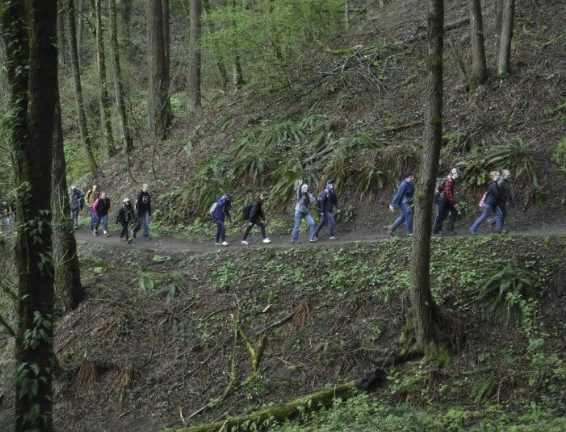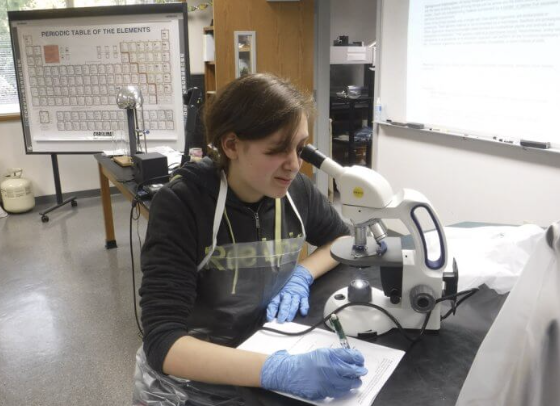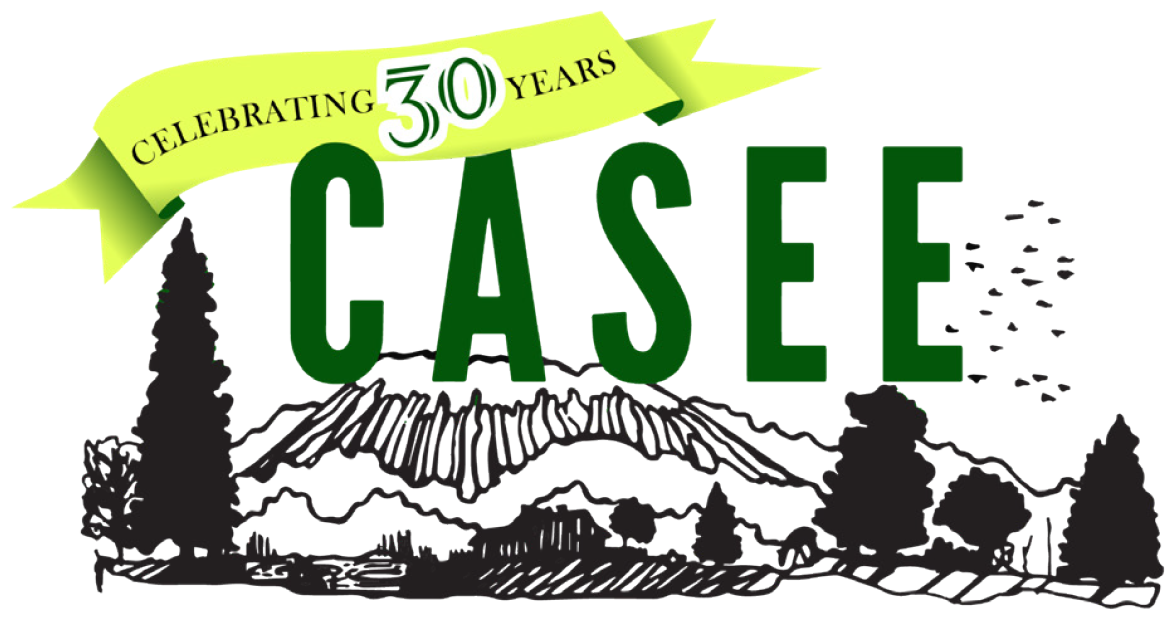CASEE I
A Unique Freshman Experience
9th Grade Students
The first set of classes available at CASEE is the CASEE I courses: Natural Resources, Biology*, and Honors English I
Enrolling in CASEE I classes means introducing yourself to a dynamic, experiential learning environment at our 80-acre outdoor learning lab, half a day, every day.
All students must complete and submit the New Student Application.

Field trips are an essential part of the CASEE program
Natural Resources
Natural Resources focuses on the studies and activities relating to the natural environment along with its conservation, use, and improvement.
Curriculum includes field studies- complete with sampling methods and techniques- and coursework and hands-on instruction in climate, air, soil, water, land, fish and wildlife, and plant resources. Students will master the basic principles of environmental science and natural resources management; and the recreational and economic uses of renewable and nonrenewable natural resources.
All-Year Course
Pre-Requisites: None
Biology*
Biology focuses on biological concepts integrated with chemistry, horticulture, and English. Students explore genetics, plant biology, and energy transfer through food production.
This course includes scientific design, cells, ecology, and taxonomic kingdoms and phylum. Additional topics include examining the needs of all living organisms and the investigating of the role of science and technology in human survival, population growth, food, energy transfer along with understanding food webs, ecosystems, thermodynamics and population models.
This course also provides an opportunity to earn 5 college credits in Biology for free through the College in the High School (CIHS) program. There is no difference in content or assignments to qualify for these credits. CASEE's CIHS courses are available through partnership with Central Washington University.
All-Year Course
Pre-Requisites: None

Anyone can read about cells in a text book but CASEE students get to see them in real life.
Honors English I
Honors English I provides students with grade-level appropriate English skills necessary for successful writing, including grammar, vocabulary, and punctuation. CASEE students earn the Honors designation for English because many of the topics discussed related to their Biology and Natural Resources concepts, which allows for a deeper understanding and application of the English curriculum.
Special emphasis will be given to descriptive, narrative, and comparative writing. Literature units will contain all major genres including short story, fiction, drama, poetry, and nonfiction. Students will work on their reading comprehension as well as critical thinking and understanding of themes and concepts.
Students will use their reading and writing skills to research topics on agriculture, environmental issues, forestry, wildlife, salmon, and native amphibians, Students will use periodicals, the Internet, and industry professionals as resources as well as personal field work they conduct, to produce and publish their research.
All-Year Course
Pre-Requisites: None
